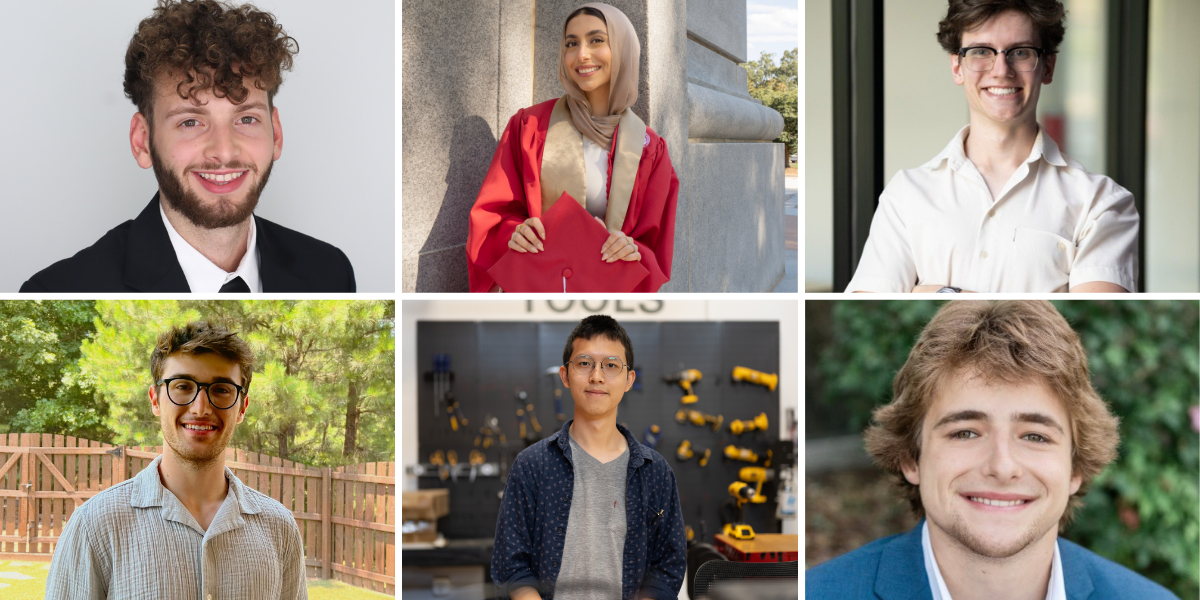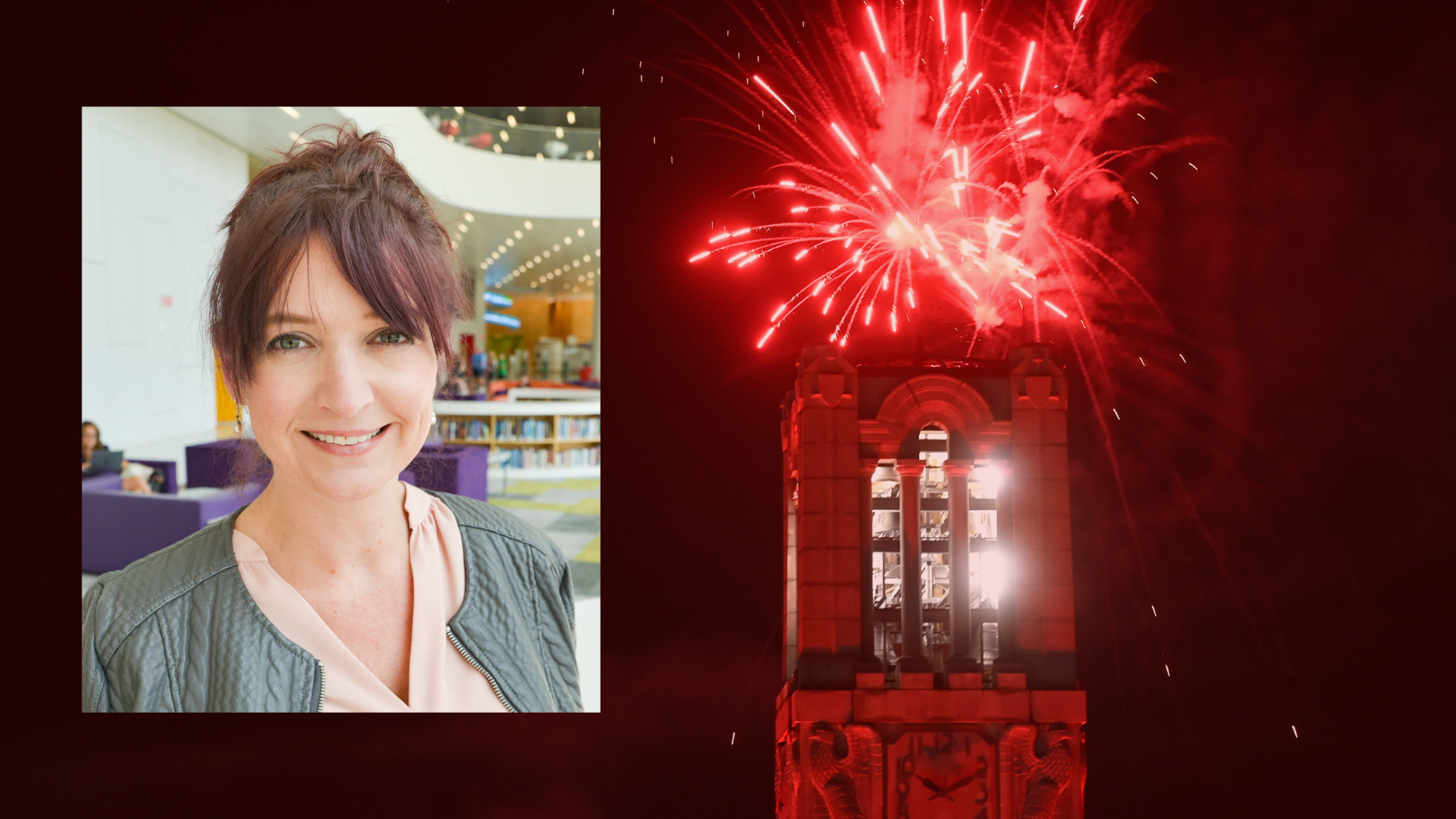Startups Pitch Plans at Andrews Launch Accelerator Demo Day
Trainees from NC State's Entrepreneurship Clinic — housed in Poole College — had a chance to pitch their startups to a crowd of students, investors and innovators.
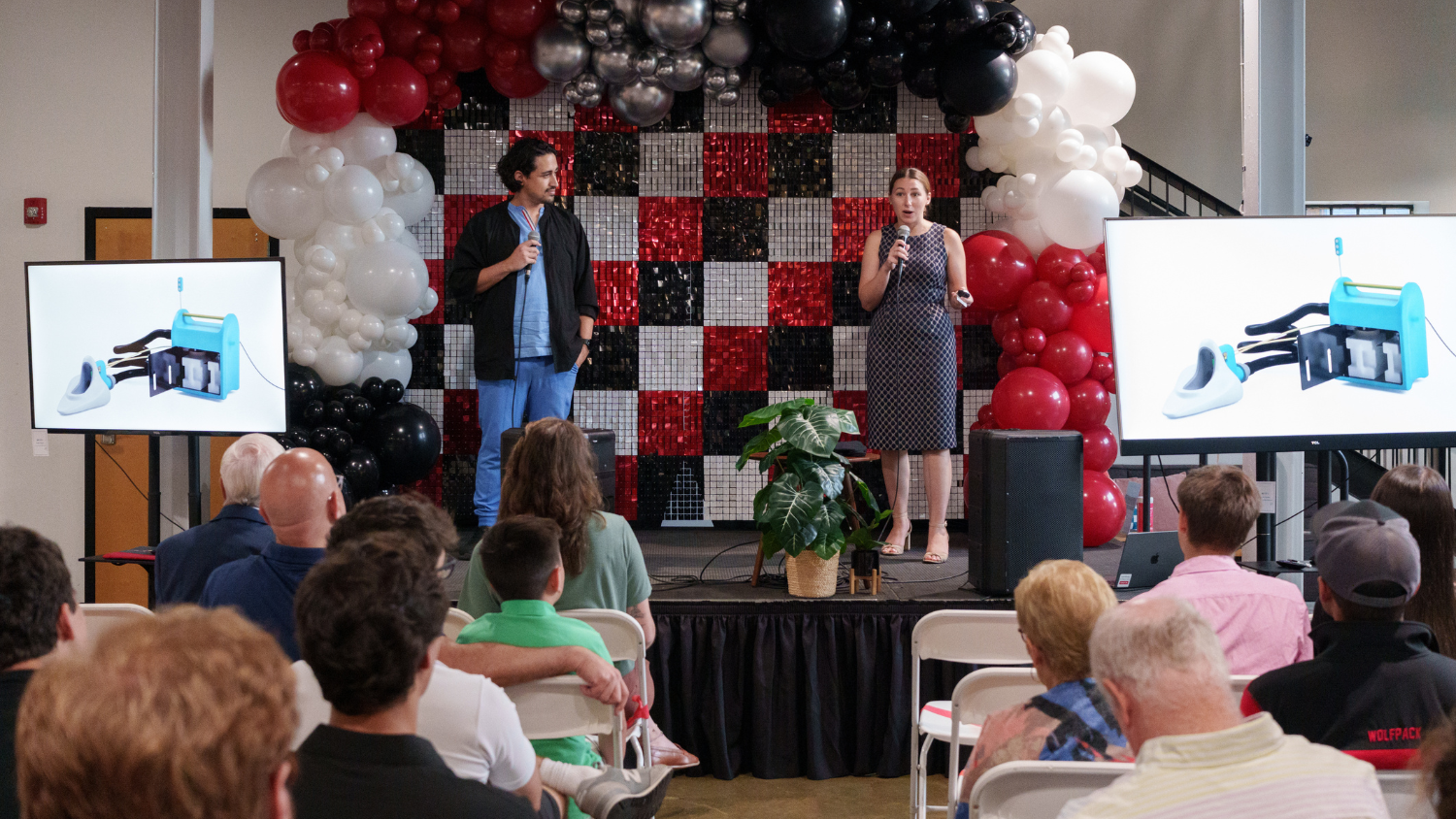
Judging by the name, you’d expect ideas to flow quickly at an event sponsored by the Andrews Launch Accelerator. In fact, the audience of 175 innovators, investors and NC State students who crowded the main floor of Raleigh Founded in August barely had time to catch their breath as one visionary after another took the stage to present tailored solutions to tricky problems.
This was Demo Day — the culmination of an intense 14-week summer training program that gave the founders of eight startup companies the chance to pitch their ideas, appeal for funding and connect with the larger entrepreneurial community.
In five-minute bursts of enthusiasm, each team highlighted a product or service they believe will fill a need, meet a challenge or even save a life.
A medical device promises to improve the monitoring of critically ill hospital patients. A robotic metalwork machine makes welding, cutting and drilling safer and easier. An eCommerce solution for retailers ensures a better fit for people buying footwear and clothing online, reducing returns and boosting profits for apparel brands.
By the end of the evening, NC State alumnus Chip Andrews sported a satisfied smile from his front-row seat. Andrews and his wife Lyn started the accelerator program with a $1 million donation to the university in 2019.
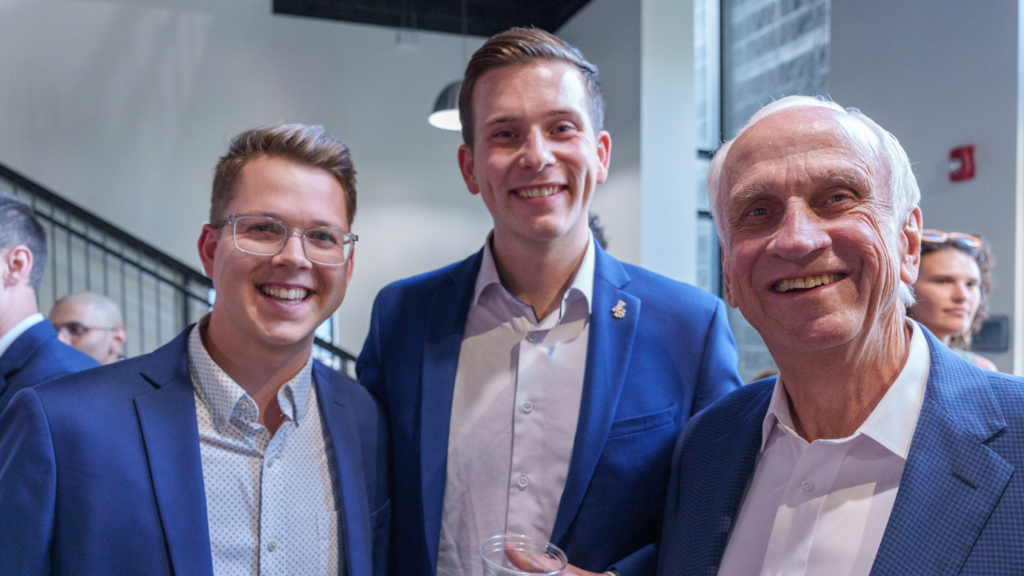
“The teams recognize that there are opportunities at this event for them to make contacts that can be very beneficial,” he said. “It’s not just about standing up and talking. You must do an extraordinary job of explaining your product or service and where you’re going with it. And I thought they did that tonight.”
It’s no accident the evening’s presentations were focused and engaging. Team members had spent the summer at NC State’s Entrepreneurship Clinic, or eClinic, housed in the Poole College of Management and located inside Raleigh Founded, a downtown coworking space.
They attended training sessions to hone their business skills, met with coaches to sharpen their innovation mindset, and consulted with industry experts to understand market forces. The program, which also includes $5,000 to $15,000 in non-dilutive seed capital, is designed to help new ventures jumpstart their entrepreneurial journey while retaining full equity in their company.
It had that effect on Emily Foster, a recent NC State graduate who is turning a pandemic hobby into a global enterprise. She began creating delightfully cute stuffed animals in 2020, turning out 10-inch tall plushies fashioned as dragons, cows, kittens and other creatures.
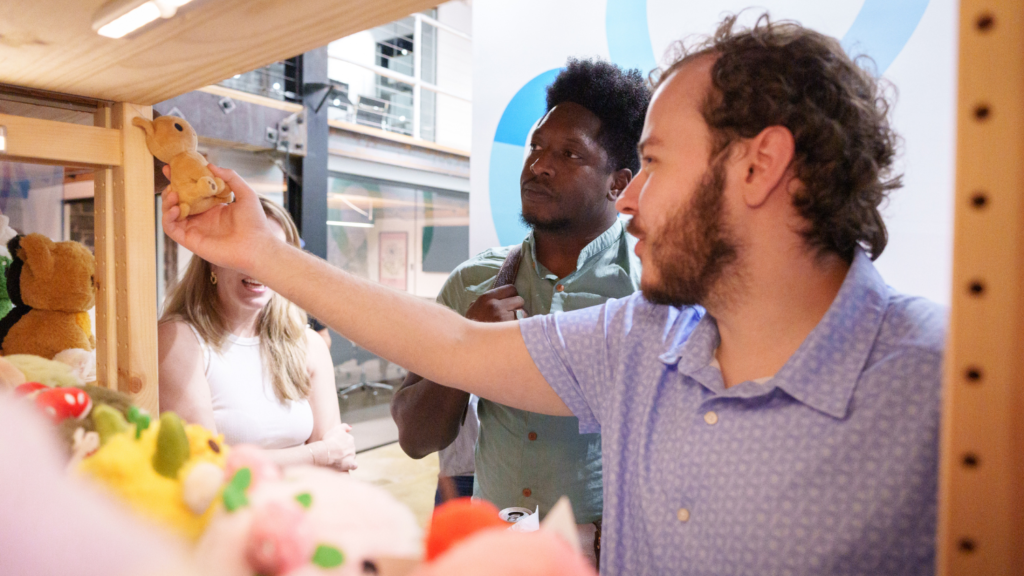
“I was trying to connect with people online because everyone needed a little bit of connection during COVID,” she said. “I ended up connecting with a lot more people than I expected.”
Today her company, Alpacasews, has more than 400,000 followers on social media. She sells her creations at trade shows and on platforms such as Etsy and Shopify. And she’s raised capital through three successful campaigns on Kickstarter, the crowdfunding site. She’s ready to take the business to the next level.
“I had a fundamental flaw in my business,” she told the audience. “I couldn’t scale up. I have two hands and doing everything by myself just isn’t going to cut it anymore. I realized something’s got to change — either me or my business. I decided it’s got to be both.”
That’s where the Andrews Launch Accelerator comes in. As a member of the 2024 cohort, Foster worked over the summer to chart her path forward. In her pitch on Demo Day, she outlined her goals. She needs advisors to help her find warehouse space and to introduce her to buyers at major retailers, as well as employees to manage fulfillment and marketing.
Her vision is simple: “I want a world where everyone has something that brings them joy in their home. And that is one of my stuffed animals.”
- Categories:

